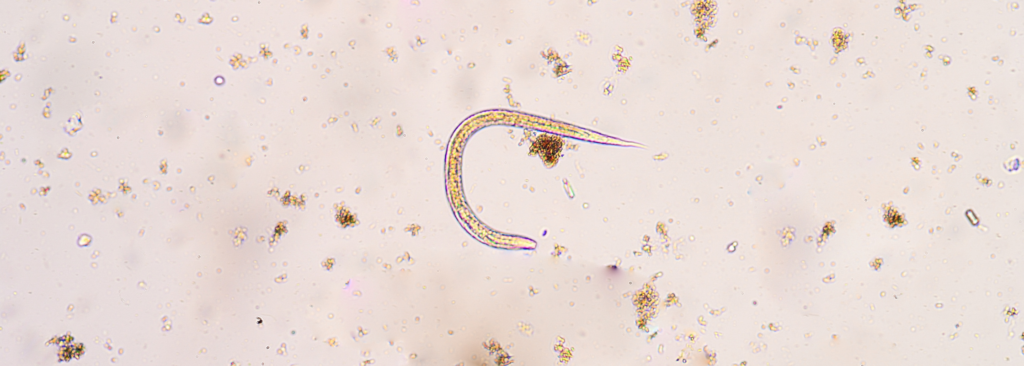I’ve had a weak immune system since I was a teenager, but it truly peaked around the age of 23 when I began catching colds every single month, getting chronic UTIs, and missing months of work due to viruses, like mono. My doctors didn’t have any answers for me and I was being prescribed antibiotics 6-8x per year, which only made my symptoms worse.
On a daily basis I wondered if other people felt as drained, spacey, and disconnected from the world as I did, and if so, how they managed to be social or productive. I couldn’t understand why I felt so awful after I ate (bloating), or why I needed a nap after every meal, even after sleeping 8-9 hours per night. I was sick, anxious, stressed, and exhausted.
I was 27 when I decided to work with a naturopath, and I realized my poor digestion was the root cause of my weak immune system. I had been dealing with chronic bloating and constipation for years, without even realizing that those symptoms were not normal. I now understand just how intricately intertwined our digestion and immune systems are, and that we can significantly strengthen our immunity by simply supporting digestion.

All of the fuel and nutrients needed for our body to function well are obtained through our digestion. It doesn’t matter how well we’re eating if we can’t break down food and absorb the nutrients. Although this blog is focused on immunity, it’s important to understand that poor digestion can have an impact on every single function in the body, therefore it is imperative for improving overall health. Before we dive into the details of how digestion affects immunity I want to give you a brief overview of how the immune system works, starting with the barriers!
Our Bodies Have 3 Barriers for Immunity
Physical Barriers
As the name suggests, the physical barriers in our body, like skin and the lining of our internal organs, protect
us by blocking invaders from entering more vulnerable areas. Some barriers may be obvious while others may
not be, like: saliva, stomach acid, mucus, and a healthy gut flora. These barriers also include forms of purging
to remove the threat, such as vomiting, defecating, urinating, sneezing, coughing, and sweating.
Innate Immunity
Innate immunity is like our body’s security team that responds to common pathogens. Our security team is
made up of complement proteins and a specific type of white blood cells, called leukocytes. These guys
identify what is dangerous and what is safe. If they fail to stop an intruder, they pass information to adaptive
immunity so they can take over.
Adaptive Immunity
If the physical barriers and innate immunity aren’t enough, these white blood cells can actually learn and adapt
to fight specific pathogens. As we’ve learned from Covid and Delta, microbes can mutate, so it’s a blessing that
we’ve developed adaptive immunity that can modify it’s cells and protect us from just about any threat.
Although we have fewer of these specialized cells than innate immune cells, we are able to produce additional
adaptive immune cells to battle the threat when an uncommon invader is detected. About a week after the
invader has been defeated, excess adaptive immune cells die off. A small portion of the adaptive cells, called
Memory B cells, retain information about the pathogen, so they can destroy it more quickly in the future.

What kind of invaders are we talking about?
I’m talking about pathogens, such as bacteria, parasites, fungus, and viruses. You might think we aren’t exposed to these types of organisms often, but you might be surprised how common they really are. Bacteria exists in everything, from the air we breathe to our intestines. Parasites can be found in nature, meat, seafood, contaminated water, and unwashed produce. We actually have multiple fungus that naturally exist in our bodies and after COVID, I definitely don’t need to explain how common it is to catch a virus. These invaders can cause anything from bacterial infections, to flus, food poisoning, and disease.
Before we explore the stages of digestion that affect our immunity, it’s important to note that digestion is a north to south process. That means each step of the process can have a significant impact on the next. The farther north the issue is, the bigger the consequence. This is something to keep in mind as we go through these areas, since these consequences can have a significant impact on more than just our immunity! Let’s take a look…
The Mouth
Ingestion begins as soon as food hits the tongue. As we are chewing, we are mechanically breaking down and mixing food with saliva, which contains properties that help to disinfect and break down food particles, preventing invaders from even entering the body to begin with. It also improves the stomach’s ability to properly break down food for absorption. This is one reason why it is so important for you to eat slowly and really chew your food!
Tip: Try chewing 25-30 times per bite, placing your fork down between bites to prevent eating too quickly.
The Stomach
Once food reaches the stomach, it’s broken down and disinfected again by stomach acid. This prevents pathogens in our food from entering the lower, more vulnerable, part of the digestive tract, where they can overgrow, and cause inflammation, crowd out healthy bacteria and damage the intestinal wall. Undigested food can cause food reactions and become food for pathogens that have made it into the lower GI tract.

Tips:
- Relax. Eating in a relaxed state improves stomach acid production and allows the body to focus energy on the process of digestion. When the body is stressed, energy is distributed to the brain and skeletal muscles, a response inherited from our ancestors to help us escape from predators. Additionally, chronic stress suppresses overall immune function, so any form of stress reduction will improve our immunity!
- Drink water, except during a meal. The processes of digestion and elimination require a lot of water, but drinking too much during a meal can dilute stomach acid. Drinking a glass of lemon juice or ACV mixed with water one hour before a meal can both hydrate the digestive tract and increase the acidity of your stomach!
- Limit processed food and increase whole foods to reduce irritation and provide nutrients needed to produce stomach acid.
The Small & Large Intestines
Our intestines have a powerful influence on our immunity because they house 70-80% of the cells in the entire immune system! The small and large intestines have multiple barriers to prevent invaders from penetrating them. The large intestine is also the home of our microbiome contains trillions of tiny organisms help us extract nutrients, regulate metabolic activity, affect our behavior and, of course, support our immunity. These organisms crowd out pathogenic bacteria, feed the epithelial cells that preserve our physical barrier against invaders, and stimulate immune function. Pathogens and opportunistic bacteria can disrupt the delicate balance of this ecosystem and influence all the various functions the microbiome performs.
In the case that the epithelial tissue becomes unhealthy or the intestinal wall becomes porous from inflammation, undigested food particles and pathogens can then pass through the lining of the intestine and into the bloodstream. This condition is known as leaky gut. Because food particles don’t typically reside in the bloodstream, the immune system may identify them as invaders, provoking an immune response. When food particles are identified as a threat by the immune system, it can generate food sensitivities, which further damage the digestive system, tax the immune system, and affect our ability to absorb nutrients.
Tips:
- Eat a fiber and nutrient rich diet. A healthy microbiome requires food in the form of fiber, which is one reason why fiber-rich, wholefoods (like fruits, veggie, whole grains and beans) are so beneficial to our health. Organisms in the microbiome feed off of fiber and then release amino acids that feed epithelial cells. Epithelial cells preserve our physical barrier against invaders.
- Take a break from food sensitivities. Allow the immune system to forget that these foods are a threat.
- Fermented foods contain probiotics. Eating them increases the total amount and diversity of good bacteria in your microbiome.
- Be selective with antibiotic use. Antibiotics don’t just kill bad bacteria, they kill good bacteria too. They can alter the ecosystem in the microbiome, and therefore its ability to function properly. This includes protecting you from pathogens! (remember 70-80% of your immune system lives here!) Additionally, relying on antibiotics regularly can cause bad bacteria to become resistant and even more difficult to kill.
- Reduce alcohol intake. Alcohol causes gut inflammation and can disrupt the balance of the intestinal microbiota.
- Again, relax. Chronic stress affects the microbiome. Stress increases inflammation and causes leaky gut, which can increase food sensitivities. As mentioned earlier, stress directs energy away from digestion, so any method of reducing stress can positively impact immunity.
It may seem overwhelming at first, but I can tell you first-hand that taking action to improve your digestion and immunity can be a true game-changer. Although I’m still in the healing process, I rarely experience UTIs or catch colds anymore, even if I’m around others who are sick. Focusing on my digestion for the last two years has given me noticeably more energy and more freedom. ( I can now travel without spending vacations, sick, in the hotel room! Insane! ) It’s incredible what some simple changes to your diet and lifestyle can do to improve your quality of life.
Relate to this blog, but feeling overwhelmed? Schedule a discovery call with me. Let’s talk about how we can help you feel like yourself again.

